|
Apostrophes confound some authors. Not knowing how to use them doesn’t mean you’re a bad writer, but getting them wrong can distract a reader and alter the meaning of what you want to say. This guide shows you how to get it right.
What does an apostrophe look like?
The apostrophe is the same mark as a closing single quotation mark: ’ (unicode 2019). This is worth remembering when you use them in your fiction to indicate the omission of letters at the beginning of a word. More on that further down. What do apostrophes do? Apostrophes have two main jobs: 1. To indicate possession 2. To indicate omission And sometimes a third (though this is rarer and only applies to some expressions): 3. To indicate a plural 1. Indicating possession The English language doesn’t have one set of rules that apply universally. However, when it comes to possessive apostrophes, the following will usually apply: Add an apostrophe after the thing that is doing the possessing.
Possessive apostrophes and names
Names can be tricky. The most common problem I see is authors struggling to place the apostrophe correctly when family names are being used in the possessive case, even more so when the name ends with an s. Here are some examples of standard usage to show you how it’s done:
Note that in the Melanie Fields singular-possession example, there are two options. Both are correct but some readers will find the second more difficult to pronounce because there are three s's a row.
Hart’s Rules (4.2.1 Possession) has this advice: 'An apostrophe and s are generally used with personal names ending in an s, x, or z sound […] but an apostrophe alone may be used in cases where an additional s would cause difficulty in pronunciation, typically after longer names that are not accented on the last or penultimate syllable.’ If you're unsure whether to apply the final s in a case like this, use common sense. Read it aloud to see if you can wrap your tongue around it, and decide whether the meaning is clear. Then choose the version that works best and go for consistency across your file. Pedantry shouldn't trump prescriptivism in effective writing. 2. Indicating omission Indicating omission when one word is created from two In fiction, we often use contracted forms of two words to create a more natural rhythm in the prose, particularly in dialogue. The apostrophes indicate that letters (and spaces) have been removed. Common examples include:
Indicating omission at the beginning, middle and end of single words
We can use an apostrophe to indicate that a letter is missing at the end of a word (dancing – dancin’), the middle of a word (cannot – can’t) and the beginning of a word (horrible – ’orrible). Start-of-word letter omissions are commonly used in fiction writing to indicate informal speech or a speaker’s accent. Make sure you use the correct mark. Microsoft Word automatically inserts an opening single quotation mark (‘) when you type it at the beginning of a word because it assumes you’re using it as a speech indicator. Apostrophes are ALWAYS the closing single quotation mark (’) so do double check if you’re indicating omission at the start of a word.
Indicating omission in numbers and dates
Plural numbers don’t usually require an apostrophe because there’s no ambiguity. In fiction writing, it’s common to spell out numbers for one hundred and below, but even when numerals are used, no apostrophe is needed for plurals.
Omission-indicating apostrophes at the beginning of dates are acceptable according to some style manuals. In the example below, the 1970s is abbreviated. It’s conventional in UK writing to follow the NHR example below.
In fiction, however, you can avoid the issue by spelling out the dates. This is universally acceptable, and my preference when writing and editing fiction.
3. Indicating a plural with an apostrophe
When indicating the plural of lower-case letters – for example, if you want to refer to two instances of the letter a – it’s essential to use an apostrophe because the addition of only an s will lead to confusion. In the non-standard examples below, you can see how the plurals (in bold) form complete words, resulting in ambiguity.
For that reason, it’s considered standard to use an apostrophe (see The Chicago Manual of Style Online 7.15 and New Hart’s Rules 4.2.2).
When indicating the plural of upper-case letters, the apostrophe would be considered non-standard because there’s no ambiguity.
Avoiding erroneous apostrophes and possessive pronouns
Possessive pronouns are the bane of the apostrophe novice’s writing life, especially its! The following possessive pronouns NEVER need an apostrophe: hers, theirs, yours and its.
If you’re unsure whether to insert an apostrophe in its, say it out loud as it is. If it makes sense, you need an apostrophe; if it doesn’t, you don’t!
Avoiding erroneous apostrophes in plural forms
The apostrophe novice can fall into the trap of creating plural forms of nouns by adding an apostrophe before the final s.
Summary
I hope you’ve found this overview useful. It isn’t exhaustive – there are entire books about apostrophes. Fucking Apostrophes is one of my favourites. However, when it comes to fiction writing, it’s unlikely that you’ll need to worry about more than the basics covered here. If you’re stuck on where to stick your apostrophe, feel free to ask me for guidance in the comments.
Further reading
Want to revisit this information quickly? Visit the Books and Videos page in my resource library to download this free booklet.
Louise Harnby is a line editor, copyeditor and proofreader who specializes in working with crime, mystery, suspense and thriller writers.
She is an Advanced Professional Member of the Chartered Institute of Editing and Proofreading (CIEP), a member of ACES, a Partner Member of The Alliance of Independent Authors (ALLi), and co-hosts The Editing Podcast. FIND OUT MORE > Get in touch: Louise Harnby | Fiction Editor & Proofreader > Connect: Twitter at @LouiseHarnby, Facebook and LinkedIn > Learn: Books and courses > Discover: Resources for authors and editors
12 Comments
22/10/2018 09:39:01 am
I would like to recommend 'Fucking Apostrophes' by Simon Griffin. Those of your readers who take exception to the word 'fucking' will not like the book, but once you have got past that point, the book is a very comprehensive guide to correct use of the apostrophe, with many helpful examples.
Reply
Alison Lees
22/10/2018 09:39:47 am
Oh, you have already recommended it. Sorry.
Reply
Louise Harnby
22/10/2018 10:34:00 am
Agreed! It's a great little book, as long as you don't mind the language!
Reply
Ben Dare
22/10/2018 12:48:59 pm
That's great Louise. Thanks for the comprehensive examples.
Reply
Louise Harnby
23/10/2018 12:06:23 am
Cheers, Ben! Glad you found it useful!
Reply
22/10/2018 10:18:17 pm
Erroneous apostrophes? I needed this. Will also check out the reference books mentioned. Thank you!
Reply
Louise Harnby
23/10/2018 12:07:02 am
Glad it's come at the right time, Felicia!
Reply
26/10/2018 04:09:30 pm
A very good post. I hope it helps a load of people.
Reply
Louise Harnby
26/10/2018 04:44:11 pm
Thanks, Vivienne! My approach is to remember that not all writers have had a formal education, and even those who do might have forgotten their English-language knowledge because their interests lay elsewhere. One of my authors told me he only discovered his passion for writing in his forties. Prior to that he'd been a tech-head. He's had to teach himself everything all over again! He struggles with apostrophes but he knows stuff about technology that makes my head swim. It's only easy when you already know how!
Reply
Hannibal
12/3/2021 09:51:20 am
Hello, I wanted to ask if in fiction writing it is advisable to use the apostrophe (correctly) or to avoid it as long as possible (to use was not instead of wasn't, etc.)
Reply
Louise Harnby
12/3/2021 09:58:54 am
Here's what I've written about this, Hannibal: https://www.louiseharnbyproofreader.com/blog/writing-natural-dialogue-using-contractions
Reply
Leave a Reply. |
BLOG ALERTSIf you'd like me to email you when a new blog post is available, sign up for blog alerts!
TESTIMONIALSDare Rogers'Louise uses her expertise to hone a story until it's razor sharp, while still allowing the author’s voice to remain dominant.'Jeff Carson'I wholeheartedly recommend her services ... Just don’t hire her when I need her.'J B Turner'Sincere thanks for a beautiful and elegant piece of work. First class.'Ayshe Gemedzhy'What makes her stand out and shine is her ability to immerse herself in your story.'Salt Publishing'A million thanks – your mark-up is perfect, as always.'CATEGORIES
All
ARCHIVES
July 2024
|
|
|
|


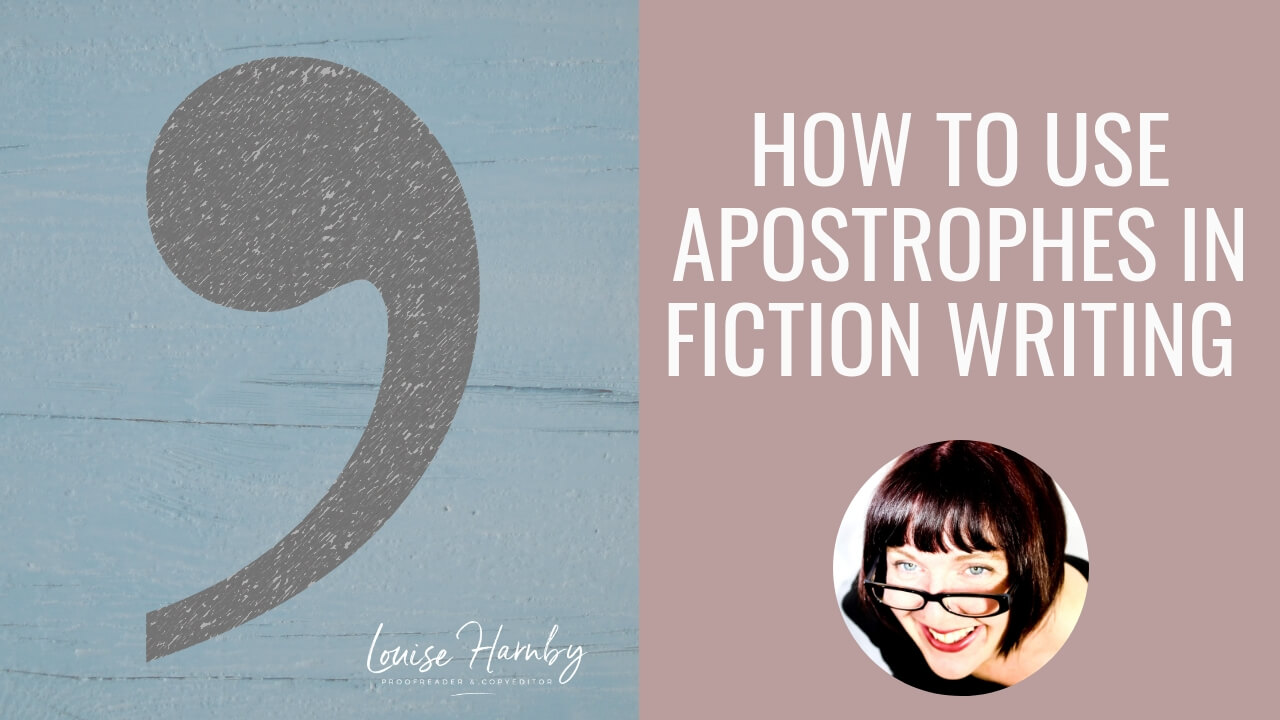
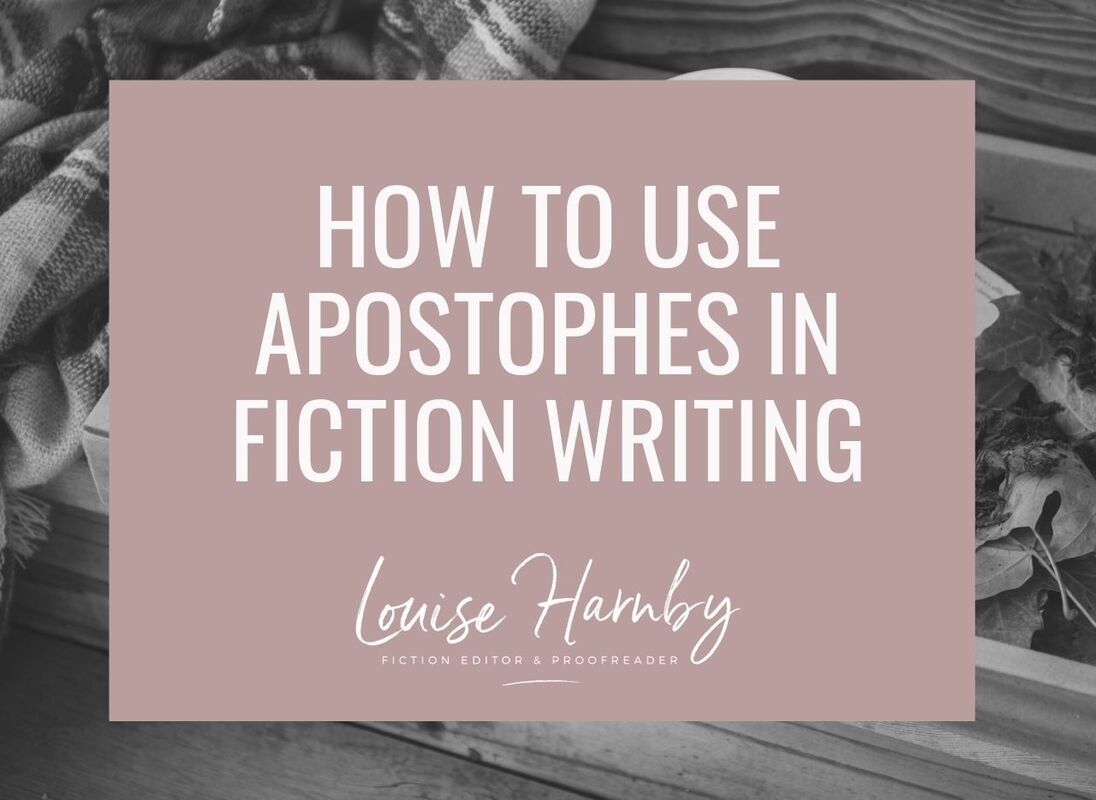
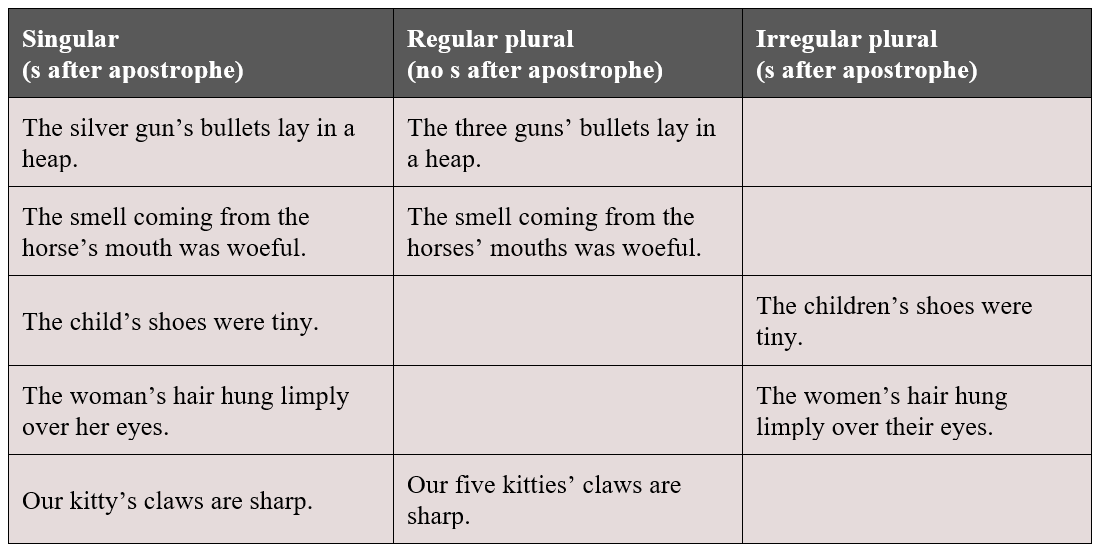
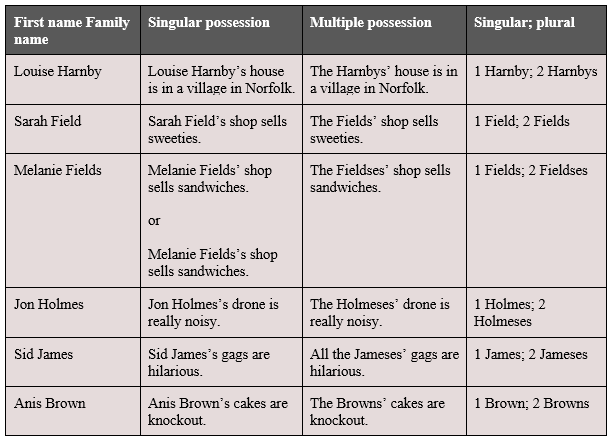
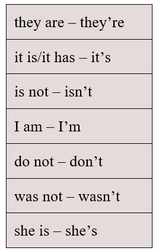

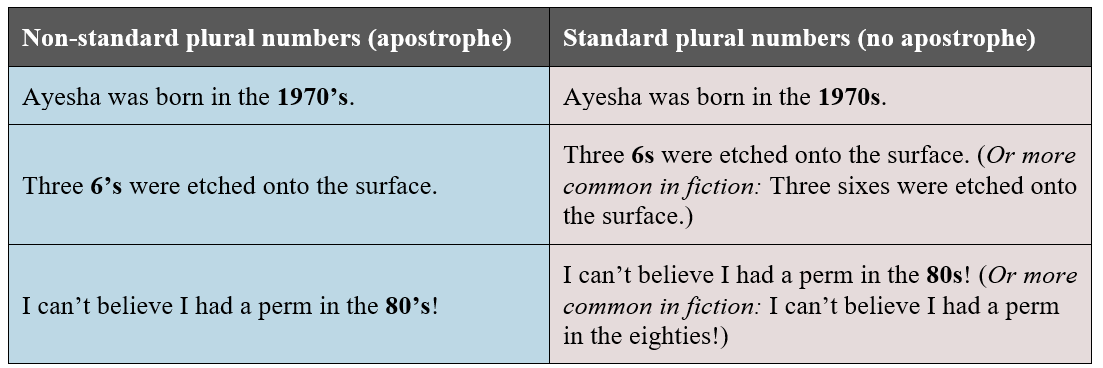





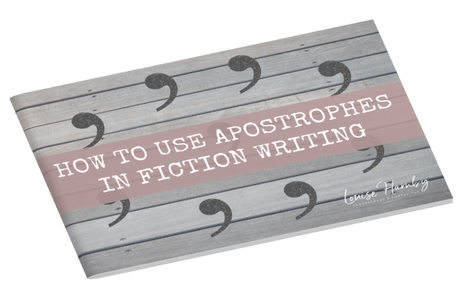













 RSS Feed
RSS Feed





